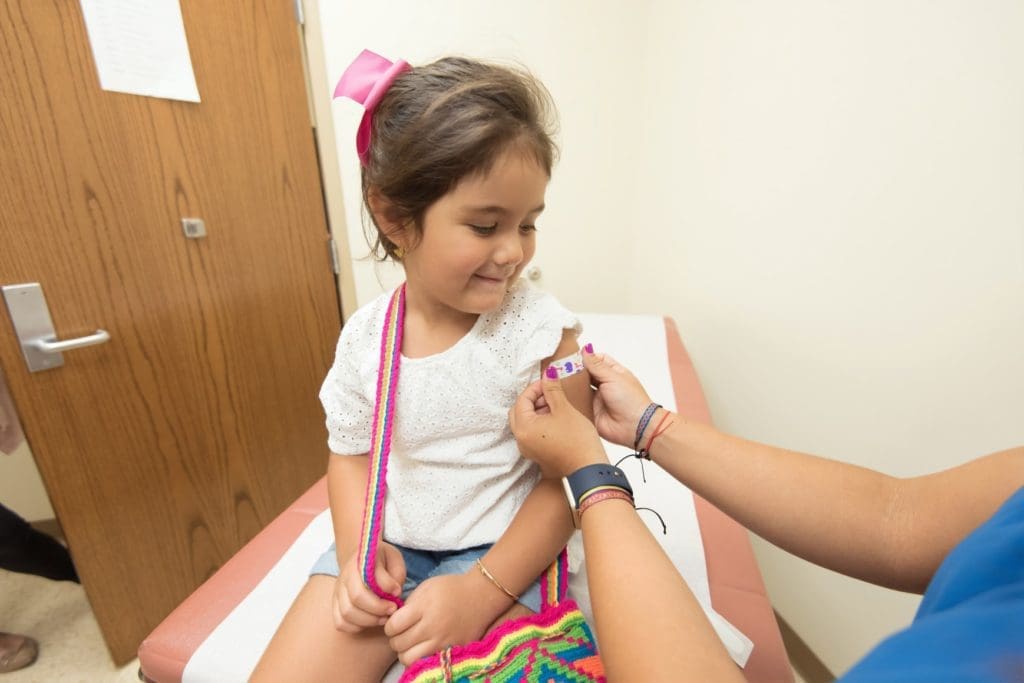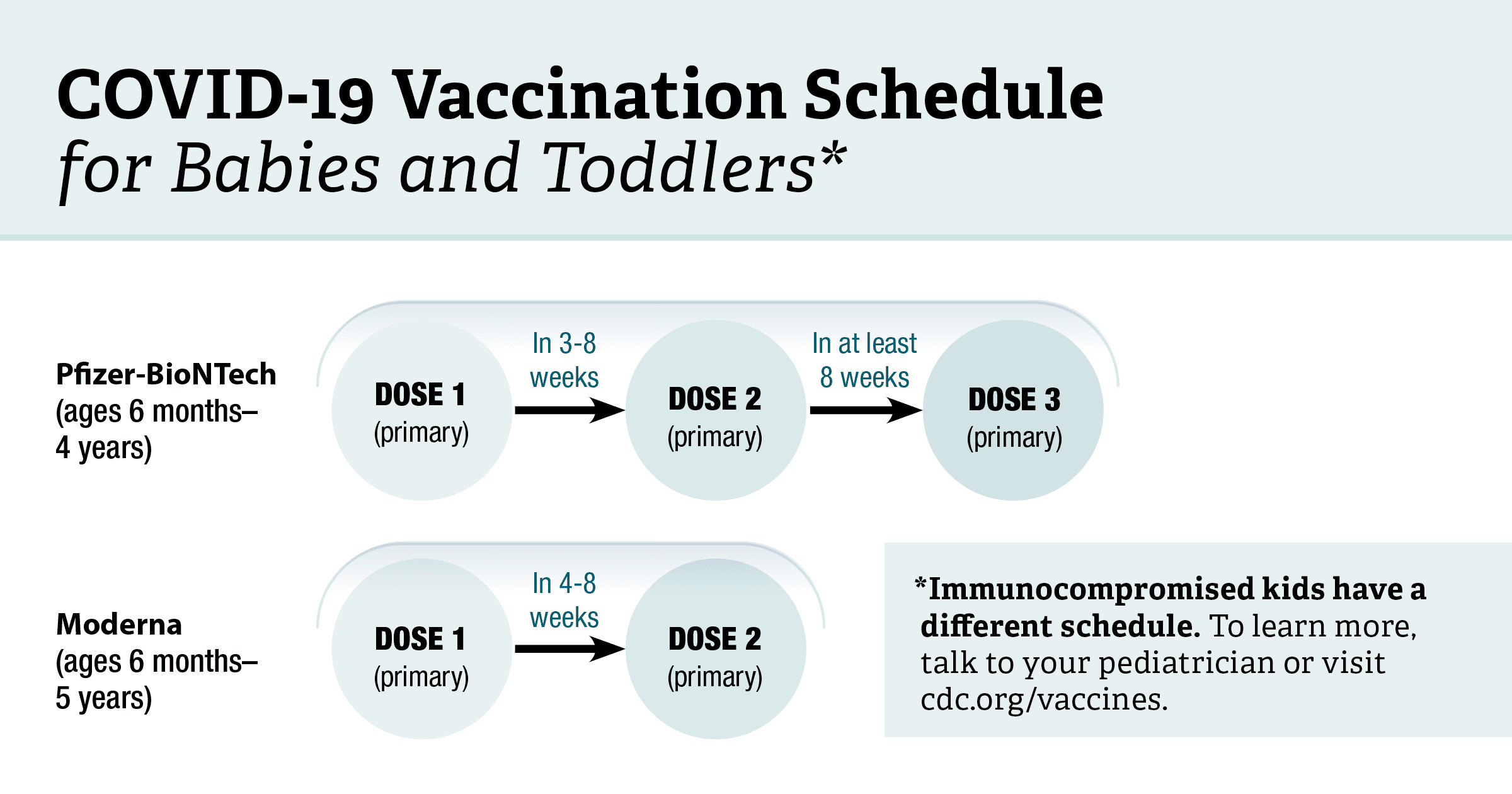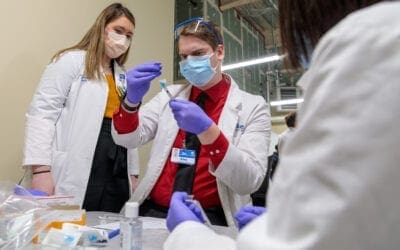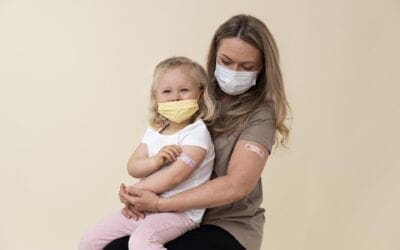FAQ: COVID-19 Vaccine for Babies and Toddlers Under 5

The day is finally here: babies and young children over the age of 6 months can now get vaccinated against COVID-19!
While some parents are eager to vaccinate their kids, others may still have questions about vaccine safety and efficacy. Having questions is perfectly normal — especially when it comes to your children’s health.
To help answer parents’ questions about the vaccines, we’ve compiled eight things to know about COVID-19 vaccination for babies and toddlers.
1. The vaccines are safe for children under 5 years old.
Over 8,000 babies and toddlers participated in clinical trials that showed the Pfizer and Moderna vaccines are safe for children over 6 months old. Both vaccines were well-tolerated in this age group and no new safety concerns were identified.
In addition, 23 million Americans ages 5 to 17 have been fully vaccinated against COVID-19. The vaccine is as effective in children under 5 as it is in older children in protecting against COVID-19 infection, serious illness, and hospitalization.
2. Babies and toddlers have a specialized vaccine dose and schedule to fit their needs.
Smaller kids mean smaller vaccine doses. Pfizer’s series for children under 5 is three doses, each a tenth of the adult dose, and Moderna’s series offer two doses at a quarter adult dose each.
Plus, the doses for both brands can be given as late as 8 weeks apart, giving plenty of time for busy parents to make a follow-up appointment. View the COVID-19 Vaccination Schedule for each age group here.
Whichever brand you choose, both are CDC-recommended for kids under age 5 and both are available at our clinics.
3. Mild side effects are normal.
The most common side effects reported in children under 5 years old were a sore arm and redness where the shot was administered — just like recipients in other age groups. Some may experience a headache or fever.
These side effects are similar to those of other childhood vaccines and are a sign that the immune system is learning how to recognize and fight the COVID-19 virus.
4. Young children can get COVID-19.
Since the beginning of the pandemic, more than 2 million children younger than 5 have been infected with COVID-19, and more than 400 children in this age group have died from COVID-19.
Even though young children are at a lower risk of severe disease from COVID-19, it doesn’t mean that there is no risk. Kids can also spread COVID-19 to others who may be more at risk for severe disease from COVID-19.
Additionally, some children have gone on to develop multisystem inflammatory syndrome (MIS-C) from COVID-19 infection.
5. Vaccinated children can safely enjoy the activities they love.
COVID-19 vaccines can give parents greater peace of mind when their kids participate in childcare, school, playdates, and other activities.
Vaccinated children have a lower risk of getting seriously sick if they get COVID-19. Plus, if your fully vaccinated baby or toddler gets exposed to COVID-19 by a playmate, they can safely continue to participate in activities without the quarantining. That means your child can spend more time doing the things they love.
6. How to make an appointment.
Many locations throughout the Kansas City metro have pediatric COVID-19 vaccines. Parents or legal guardians can bring their children 6 months and older to vaccination sites, clinics, and pharmacies. You can go to Jackson County Health Department’s COVID-19 vaccine clinics or find other vaccination sites.
If you’re a parent or guardian, expect to sign a consent form and be there when your child is vaccinated.
7. What to expect at a COVID-19 vaccination appointment.
After getting checked in, the nurse will ask some questions about your child’s health. You can hold your child or have them sit or lie down while they receive the vaccine. You will be asked to wait for 15 or 30 minutes afterward to monitor for reactions. Finally, you will be given a vaccine record card for your child. It will include when and where they received the vaccine and when their second dose is due.
8. Where to go if you have additional questions.
- Talk with your child’s healthcare provider
- Call a Jackson County Health Department nurse at (816) 404-6415
- CDC – COVID-19 Vaccines for Children and Teens
- American Academy of Pediatrics
Archives
- February 2026 (1)
- December 2025 (1)
- November 2025 (2)
- September 2025 (1)
- July 2025 (2)
- June 2025 (3)
- April 2025 (2)
- January 2025 (2)
- December 2024 (1)
- September 2024 (2)
- August 2024 (2)
- July 2024 (1)
- June 2024 (1)
- February 2024 (1)
- July 2023 (1)
- March 2023 (1)
- October 2022 (1)
- September 2022 (1)
- August 2022 (1)
- July 2022 (2)
- June 2022 (2)
- May 2022 (1)
- April 2022 (4)
- March 2022 (1)
- February 2022 (1)
- January 2022 (1)
- December 2021 (4)
- November 2021 (3)
- September 2021 (2)
- August 2021 (3)
- July 2021 (2)
- June 2021 (1)
- May 2021 (2)
- March 2021 (1)
- December 2020 (6)
- November 2020 (8)
- October 2020 (4)
- September 2020 (7)
- August 2020 (3)
- July 2020 (11)
- May 2020 (2)
- April 2020 (4)
- March 2020 (1)
Categories
- Communicable Disease (5)
- Clinical Services (19)
- Clinical Servcies (1)
- Health Promotions (74)
- Emergency Preparedness (8)






